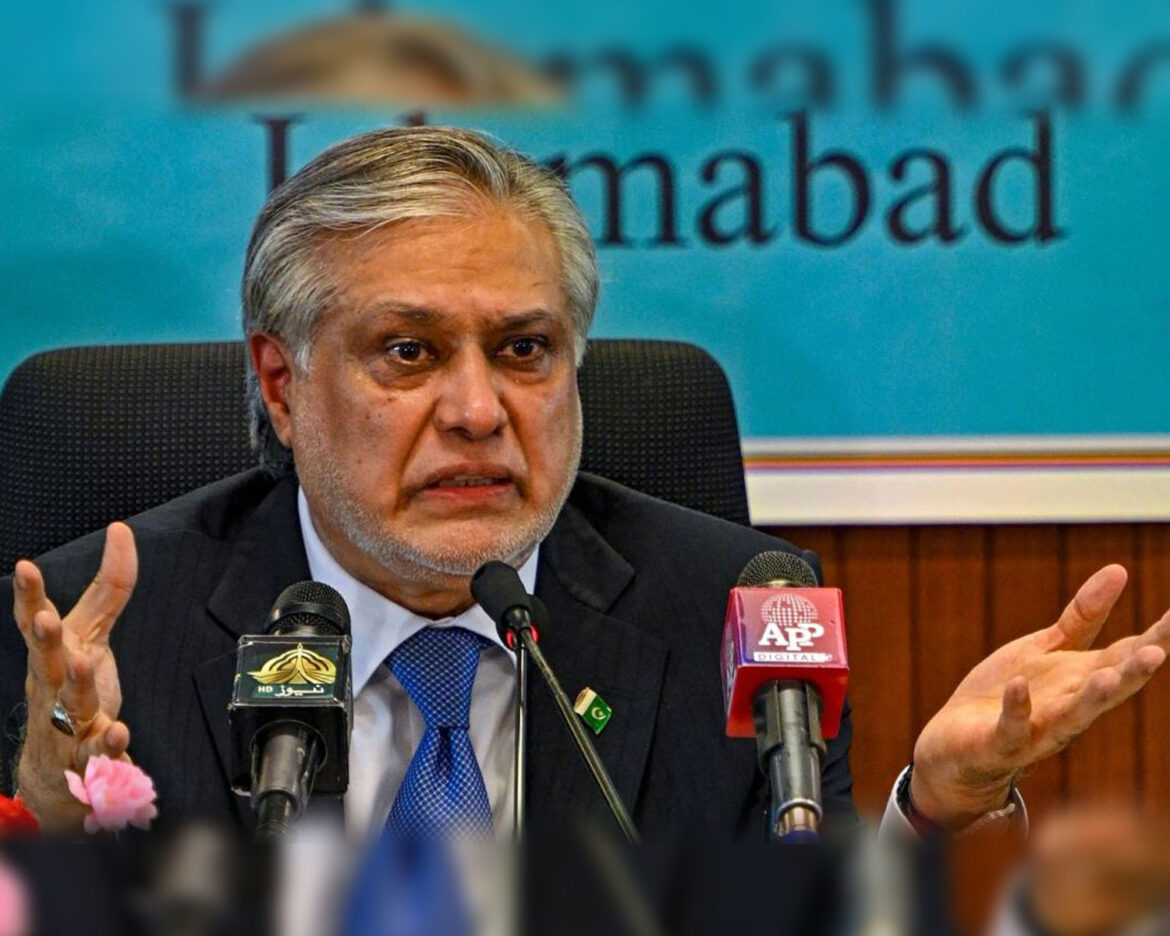In the last fiscal year, Pakistan’s federal budget deficit has surged to an unprecedented level, hitting Rs6.7 trillion, which far surpasses the set target. This drastic increase is attributed to elevated spending on debt servicing and defense, which exceeded the net income of the central government by a staggering 59%.
The federal government’s expenses on debt servicing and defense ballooned to over Rs7.4 trillion, overshadowing its net income of Rs4.6 trillion. This discrepancy created a gap of Rs2.76 trillion between these two categories alone.
Unfortunately, the coalition government not only failed to meet its budget objectives but also couldn’t adhere to the fiscal limitations agreed upon with the International Monetary Fund (IMF) earlier in the year. Despite imposing new taxes to mitigate the deficit, the fiscal actions taken were inadequate.
A concerning revelation emerged as the finance ministry struggled to identify the source of Rs425 billion in spending, designated as a “statistical discrepancy” in the fiscal operations summary released recently.
The federal government exceeded the projected budget deficit by a whopping 47%, equivalent to Rs2.1 trillion. This pushed the fiscal year 2022-23 deficit to Rs6.68 trillion, far surpassing the targeted Rs4.54 trillion.
The fiscal year 2022-23 witnessed numerous fiscal decisions by the coalition government that deviated from prudent fiscal management practices, making it one of the worst years in terms of fiscal operations.
In comparison to the previous year, the federal deficit grew by Rs1.1 trillion, or nearly 20%, according to provisional data compiled by the Ministry of Finance. This has led to the Pakistan Democratic Movement (PDM) government accumulating Rs18.5 trillion in public debt within just 15 months, a figure exceeding the debt amassed by its rival Pakistan Tehreek-e-Insaf over its three-and-a-half-year tenure.
The gross public debt surged from Rs44.4 trillion in March 2022 to Rs62.9 trillion by the end of the fiscal year 2022-23.
Expressed as a percentage of the economy, the federal budget deficit stood at 7.9% of the gross domestic product (GDP).
The disappointing fiscal outcomes could potentially have adverse consequences for fiscal activities in the current fiscal year. Restraining escalating expenses, especially in debt servicing, might prove to be challenging.
Throughout the last fiscal year, the federal government’s total expenditures spiked to Rs11.3 trillion, surpassing the budgeted goal by over Rs1.75 trillion or more than 18%.
Interest expenditures reached Rs5.83 trillion, exceeding the budget projection by Rs1.83 trillion, representing a 48% increase. Given high inflation and the resultant interest rate hikes, the government’s budgeted Rs7.3 trillion for debt servicing in the current fiscal year might not be attainable.
The federal current expenditures climbed to Rs10.9 trillion during the last fiscal year, overshooting the budget target by Rs2 trillion. This could impact the current year’s target for current expenditures of Rs13.3 trillion, mainly due to the rising cost of interest payments.
Of particular concern is that interest payments were 25% higher than the net federal government revenue of Rs4.7 trillion. This discrepancy highlights the pressing issue of the federal government’s net income falling significantly short of interest payment costs.
The former prime minister Shehbaz Sharif’s government relied heavily on borrowing for all activities, including initiatives like laptop schemes, infrastructure projects, subsidies, salaries, and administrative costs.
The IMF’s earlier estimate for debt servicing costs in February of the same year was Rs5.57 trillion. This underlines the rapid escalation of interest payments, doubling within a year from Rs3.2 trillion in fiscal year 2021-22.
In contrast to the target of Rs727 billion, development spending reached Rs743 billion, partially attributed to the former government’s increased focus on parliamentary projects and other prime ministerial initiatives.
As per the IMF program, Pakistan was committed to generating a primary budget surplus of 0.2% of GDP, equal to Rs153 billion, in the last fiscal year. However, the government recorded a deficit of Rs690 billion, equivalent to 0.8% of GDP.
Provincial governments contributed only a surplus of Rs155 billion against a target of Rs750 billion.
The Federal Board of Revenue (FBR) collected Rs7.169 trillion in taxes, falling short of the Rs7.670 trillion target despite the implementation of a mini-budget.
Non-tax revenues amounted to Rs1.71 trillion, missing the annual target of Rs1.935 trillion. The unrealistic petroleum levy target played a significant role in this shortfall, with petroleum levy collections reaching Rs580 billion against the target of Rs855 billion.
The State Bank shared a profit of Rs371 billion with the federal government, surpassing the Rs300 billion target.
Consequently, the gross federal revenue receipts totaled Rs8.9 trillion, falling short by Rs525 billion compared to the target. After transferring provincial shares, the federal government’s total net income amounted to Rs4.67 trillion, undershooting the annual target by Rs376 billion.
The federal government disbursed Rs4.2 trillion to provinces as their share in federal taxes, which also fell short due to lower-than-targeted FBR collections.
Incorporating the cash surplus of over Rs155 billion achieved by provincial governments, the country’s overall deficit reached Rs6.52 trillion, equivalent to 7.7% of GDP.



